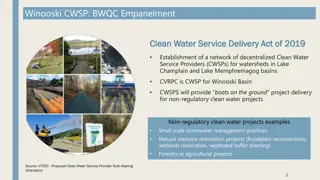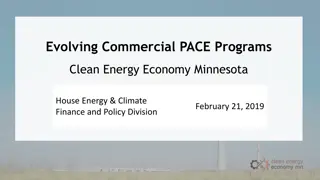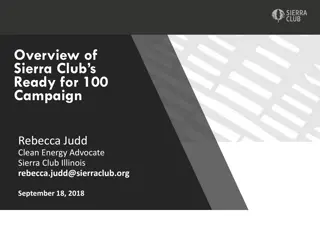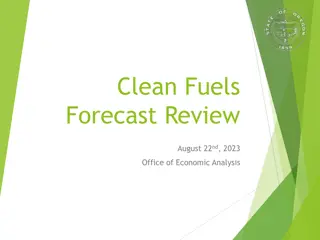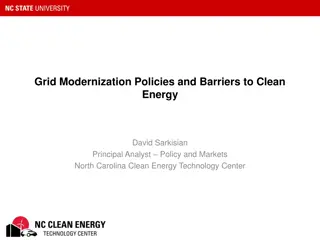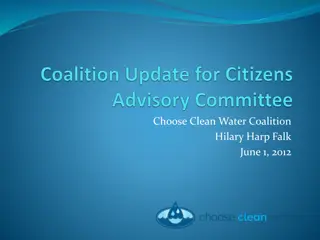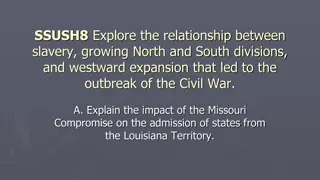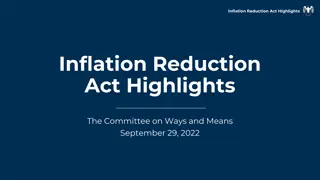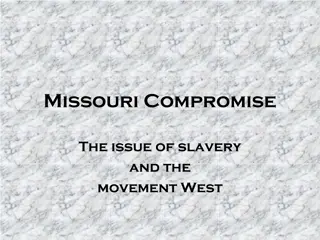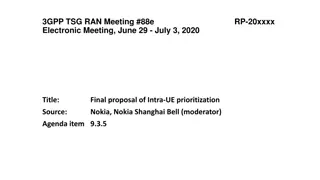
Goodlatte Compromise Proposal for Remote Sellers Taxation
Explore the Goodlatte Compromise Proposal which outlines a framework for remote seller taxation. It includes provisions for destination rate limits, tax base determination, remittance processes, and state distribution agreements. Additionally, examples illustrate how taxes are collected and remitted in different scenarios, along with considerations for NOMAD states. Discover the implications if a destination state does not join the compact.
Download Presentation

Please find below an Image/Link to download the presentation.
The content on the website is provided AS IS for your information and personal use only. It may not be sold, licensed, or shared on other websites without obtaining consent from the author. If you encounter any issues during the download, it is possible that the publisher has removed the file from their server.
You are allowed to download the files provided on this website for personal or commercial use, subject to the condition that they are used lawfully. All files are the property of their respective owners.
The content on the website is provided AS IS for your information and personal use only. It may not be sold, licensed, or shared on other websites without obtaining consent from the author.
E N D
Presentation Transcript
Goodlatte - Compromise Proposal Remote seller collects at destination rate Destination rate is limited to one rate per state Tax base (e.g., taxability) determined by origin state laws Remittance by remote seller is to origin state Origin state remits to clearinghouse Clearinghouse remits to destination state 2
Goodlatte - Compromise Proposal States enter into a Distribution Agreement Requires state to select singe statewide rate for remote sellers Enact laws to require state s own sellers to collect at participating states designated remote seller rates 3
Goodlatte - Compromise Proposal Example: Remote seller located in UT Purchaser located in MA Purchases product taxable under both UT and MA law Product shipped to purchaser in MA UT remote seller collects MA tax based on single statewide rate for remote sellers Remote seller segregates MA tax and reports that to UT UT collects and sends that to clearinghouse Clearinghouse submits to MA 4
Goodlatte - Compromise Proposal Example: Remote seller located in UT Purchaser located in MA Purchases product taxable under UT law but exempt under MA law Product shipped to purchaser in MA UT remote seller collects MA tax based on single statewide rate for remote sellers Remote seller segregates MA tax and reports that to UT UT collects and sends that to clearinghouse Clearinghouse submits to MA 5
Goodlatte - Compromise Proposal NOMAD States (New Hampshire, Oregon, Montana, Alaska and Delaware) Sellers have choice: Either collect at destination rate; or Report the details of transaction to destination state Sellers in these states have choice regardless of whether NOMAD state joins the compact 6
Goodlatte - Compromise Proposal If Destination State does not join the compact: Remote seller imposes tax based on origin state laws and at origin rate and origin state keeps it Destination state must provide credit for tax paid by purchaser to seller at origin state rate against the use tax destination state may try to impose, even though destination state never received any of the tax 7
Goodlatte - Compromise Proposal If Origin State does not join the compact: Remote sellers in nonparticipating states must report the sales to the purchaser s (destination) state so destination state can collect use tax directly from purchaser 8
Goodlatte - Compromise Proposal Origin State state where business has the most employees Origin state does the audits 9
Goodlatte - Compromise Proposal Initial Concerns: Tax parity is not achieved Taxation without representation Steps on State sovereignty Additional taxing regime Privacy concerns Legal challenges Increased fraud possibilities 10



